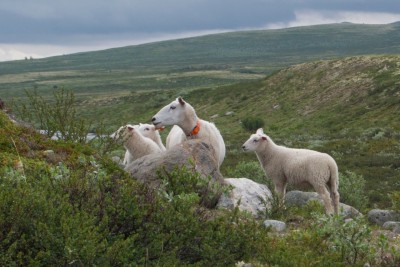Local farmers are once again setting their sights on niche products, hoping they can attract new revenues by producing and packaging specialty items that offer a “taste of Norway” to consumers willing to pay premium prices.

State officials have been pushing niche products for years, and now they’re setting aside NOK 62 million to help farmers launch into the specialty food and drink markets. Cider from Hardanger, rich butter from Røros, gourmet lamb from Varanger and the cured fish known as rakfisk from Valdres are among the products eligible for fresh state funds.
“During the past 10 years, interest for food with a local identity has increased a lot among Norwegian consumers,” Agriculture Minister Lars Peder Brekk of the farmer-friendly Center Party told newspaper Aftenposten. “I see opportunity for Norwegian agriculture through production of food that folks are willing to pay extra for.”
Various attempts over the years have met a mixture of success and disappointment. Several brands of locally produced goat cheese are popular, as are specialty items like asparagus from Hvasser and the classic Norwegian strawberries. In Oslo, local farmers’ markets set up on a Saturday every month attract eager crowds and shoppers.
But in Hadeland, north of Oslo, a local food retailing venture called Mat fra Hadeland (Food from Hadeland) shut down its lone shop after several years. The venture pooled resources and products from a variety of farms in the area and had its fans, but ultimately had trouble administering the effort and competing with local grocery stores.
Other more exotic ventures like raising llamas and ostriches also have mostly failed in Norway, but they lacked regional identity. Now some farmers and ranchers hope their local cheeses and hams can compete against high-priced imports.
Cider-maker Dag Helleland from Lofthus in Hardanger, however, faces a major retailing challenge: Local liquor laws that restrict sale of alcoholic beverages to the state-controlled Vinmonopolet. Helleland wants to be able to sell his family’s cider, which he describes as a semi-dry, slightly sparkling drink “not unlike champagne,” on site.
“It’s in demand, but almost impossible to buy,” Helleland told Aftenposten. “We’re allowed to produce it, but we can’t sell it.”
Views and News from Norway/Nina Berglund
Join our Forum if you’d like to comment on this story.

